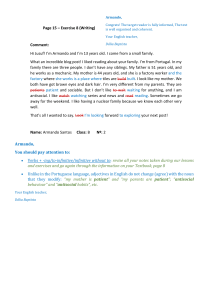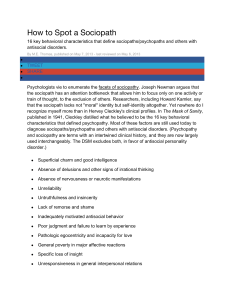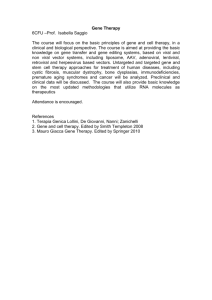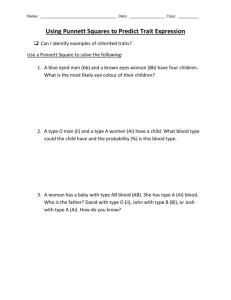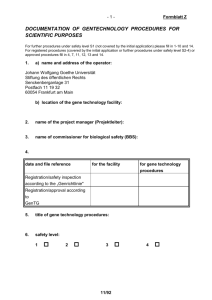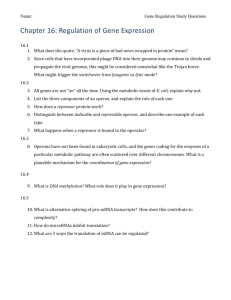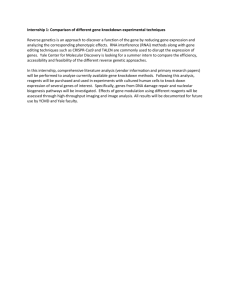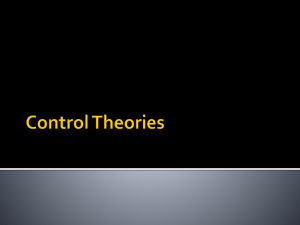ABSTRACT OF THE DISSERTATION
advertisement
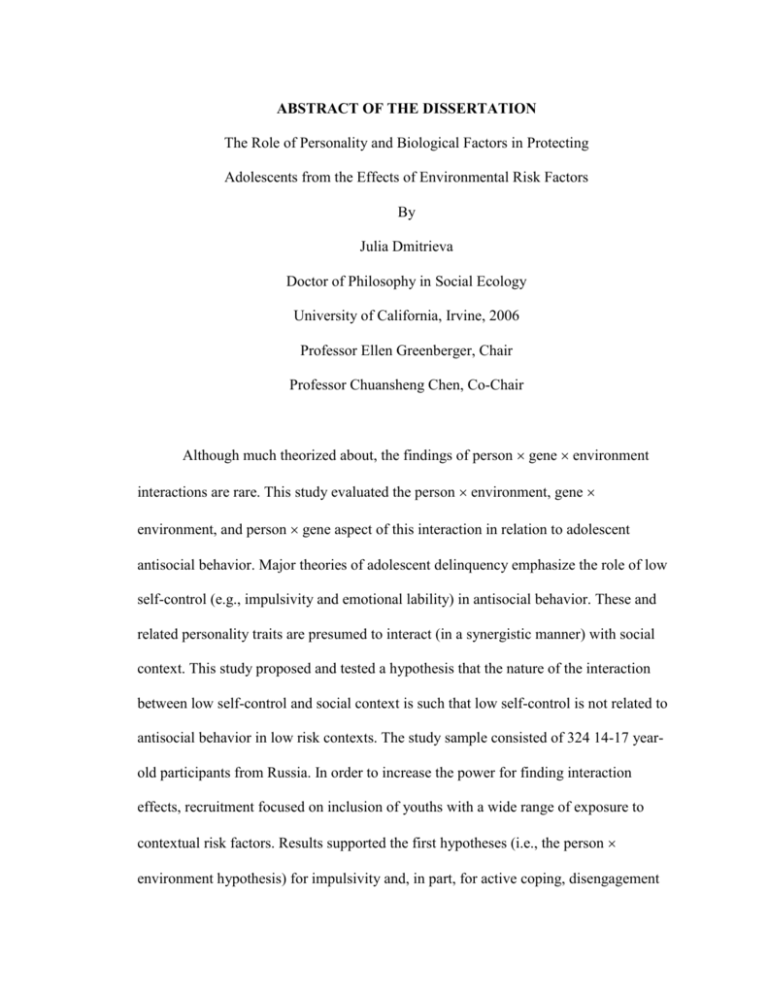
ABSTRACT OF THE DISSERTATION The Role of Personality and Biological Factors in Protecting Adolescents from the Effects of Environmental Risk Factors By Julia Dmitrieva Doctor of Philosophy in Social Ecology University of California, Irvine, 2006 Professor Ellen Greenberger, Chair Professor Chuansheng Chen, Co-Chair Although much theorized about, the findings of person gene environment interactions are rare. This study evaluated the person environment, gene environment, and person gene aspect of this interaction in relation to adolescent antisocial behavior. Major theories of adolescent delinquency emphasize the role of low self-control (e.g., impulsivity and emotional lability) in antisocial behavior. These and related personality traits are presumed to interact (in a synergistic manner) with social context. This study proposed and tested a hypothesis that the nature of the interaction between low self-control and social context is such that low self-control is not related to antisocial behavior in low risk contexts. The study sample consisted of 324 14-17 yearold participants from Russia. In order to increase the power for finding interaction effects, recruitment focused on inclusion of youths with a wide range of exposure to contextual risk factors. Results supported the first hypotheses (i.e., the person environment hypothesis) for impulsivity and, in part, for active coping, disengagement coping, anger, behavioral activation, and behavioral inhibition. The second hypothesis tested the role of dopamine receptor 4 gene (DRD4) in explaining low self-control and delinquent behavior. Results showed that individuals with the 7-repeat allele were more likely to have high trait anger when living in a context of high peer delinquency or exposure to violence. Furthermore, higher anger was more strongly linked to antisocial behavior for these individuals. Results for the 2- and 3-repeat alleles indicated their protection function. The 2-repeat allele protected youths from the effects of various adverse social contexts on antisocial behavior. The 3-repeat was also protective in the context of negative life events but not for other contexts. Implications for future studies are discussed.
